Complete your selection
Ashwagandha, a traditional plant from Ayurvedic medicine
Our dietary supplement is formulated from ashwagandha (Withania somnifera), a plant native to the dry regions of India such as Rajasthan and Gujarat, but which also grows in Nepal, China and Yemen. Sometimes known as Indian ginseng, the ashwagandha plant has been used in traditional Indian medicine for thousands of years. In Ayurvedic medicine, ashwagandha is considered a Rasayana – a tonic for restoring and maintaining health and longevity.
The many medicinal properties of ashwagandha
An Ayurvedic tonic and revitaliser, ashwagandha’s reputation comes from its many medicinal properties: it is thought to have anxiolytic, hypotensive, pain-relief and antioxidant effects. As a result, this energising plant is traditionally used to treat problems related to ageing, impotence and mental fatigue. Offered as a natural anti-stress remedy to help soothe and relax, ashwagandha is also used to combat insomnia and anxiety.
Ashwagandha, a recognised adaptogen plant
With its many benefits and anti-stress effects, ashwagandha is classified as an adaptogen plant. These atypical plants have the particular feature of increasing the body’s ability to adapt to different stressful situations. In other words, they tend to regularise various metabolic functions. However, not only are there differences in how these adaptogen plants behave, but their effects can vary from one individual to another. This is the case with ashwagandha which tends to have a particular effect on brain function and the immune system. Other widely-used adaptogen plants include Panax ginseng, Rhodiola rosea and Astragalus membranaceus. As with ashwagandha, these plants have long been used as tonics in many traditional systems of medicine.
Withanolides, powerful compounds in ashwagandha
It is ashwagandha’s steroidal lactone content, particularly withanolides, which are responsible for this medicinal plant’s stimulant and beneficial effects. Of these withanolides, withaferin A may be the plant’s most powerful active principle. This molecule appears to have a number of effects on the body’s cells: anti-inflammatory, cardio-protective, neuro-protective, immune-suppressant and anti-tumour. While additional studies are underway to further explore its mechanisms of action, withaferin A could well offer significant therapeutic potential, both in terms of the prevention and treatment of certain diseases.
Super ashwagandha, a safe and optimal formulation
Our Super ashwagandha product contains the patented ashwagandha root extract KSM-66®, standardised to contain more than 5% withanolides. For optimal quality and safety, neither chemicals nor alcohol have been used in this formulation. It respects the delicate balance between the various constituents naturally present in whole ashwagandha root. Each capsule of Super ashwagandha contains 300mg of patented extract. The recommended dose for our dietary supplement is two capsules a day, though this can be adapted in line with your therapist’s advice. Offering strength, vitality and well-being, this traditional medicine-derived formulation is now available to buy from our on-line catalogue.
What is in Super Ashwagandha
Any questions?
Our team of nutrition experts and scientists has the answers.
This product’s capsules are made of pullulan, a natural polysaccharide obtained by fermenting tapioca or corn. Pullulan contains no animal ingredients and provides an excellent barrier to oxygen, helping to preserve the integrity of the capsule’s ingredients. It is also an eco-friendly alternative to synthetic materials.
december 18 2024
Very good it works
december 10 2021
MUCH MUCH TOOOOO EXPENSIVE !
august 2 2021
Effets surprenants sur le long terme, sans addiction et efficace.
november 7 2025
Funciona muy bien para dormir relajada y sin la tensión del dia a dia.
october 8 2025
Super Qualität
Need help?
You may also like

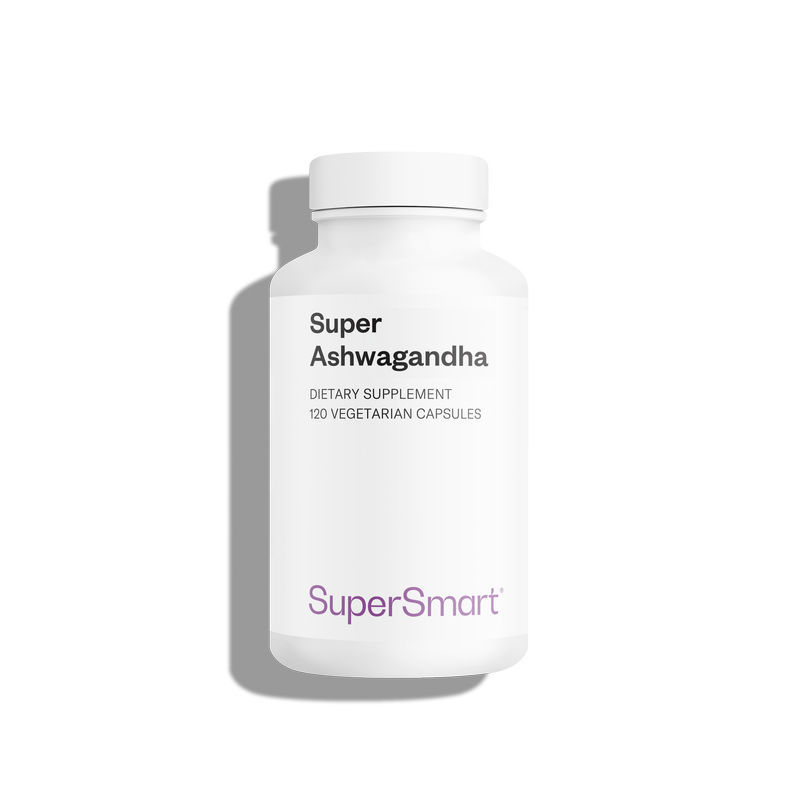
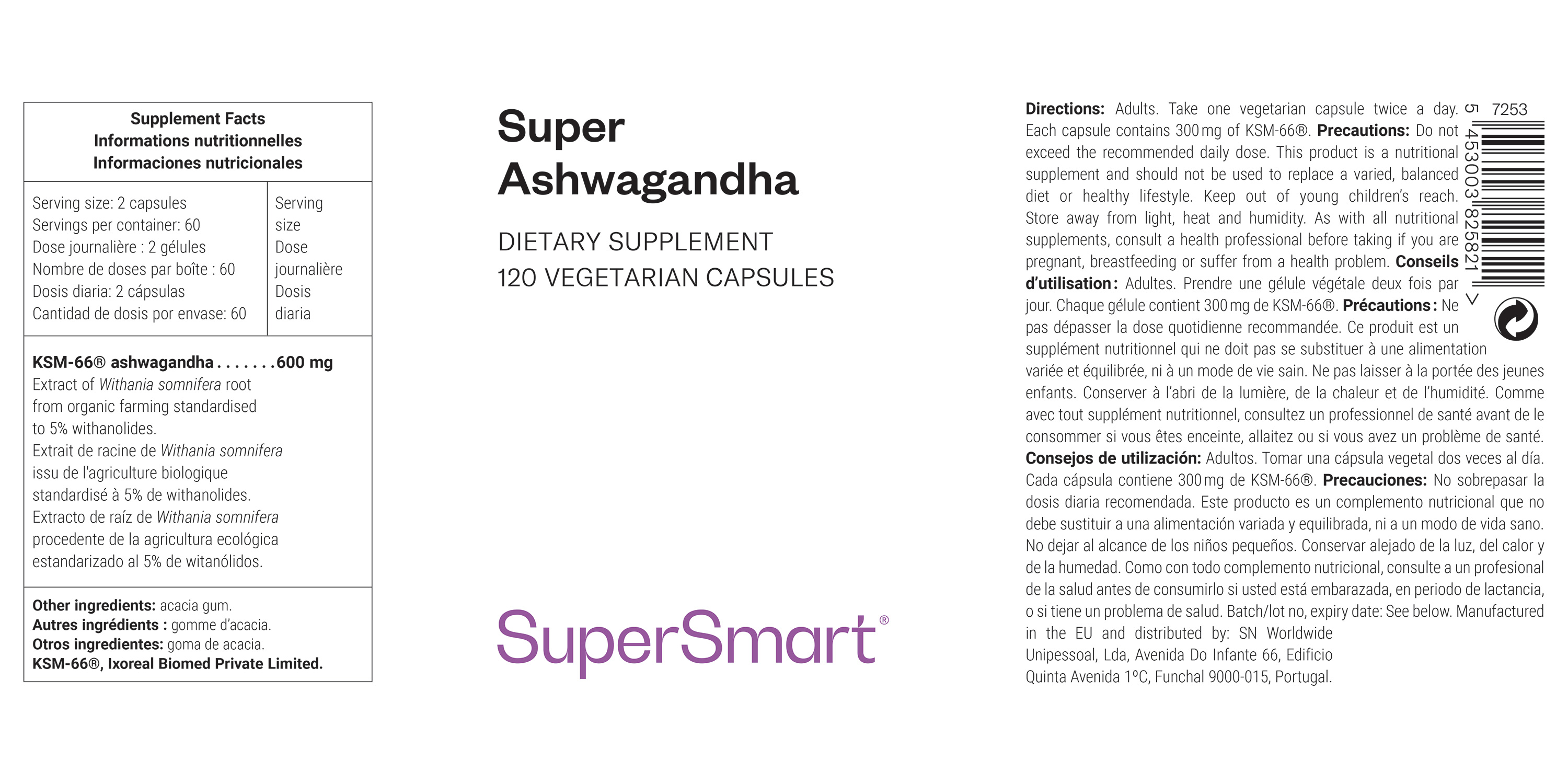
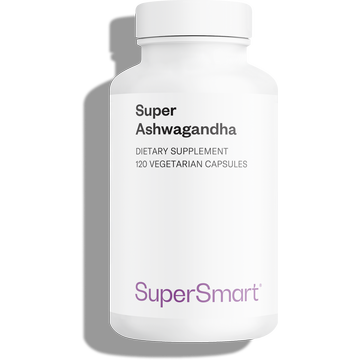
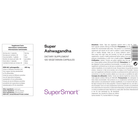

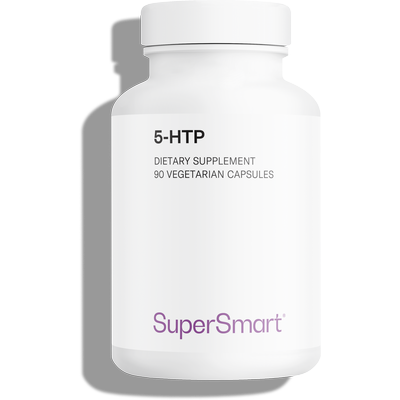
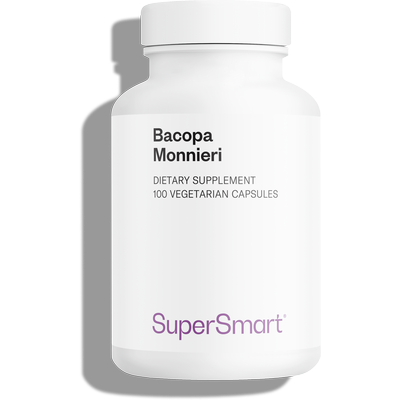
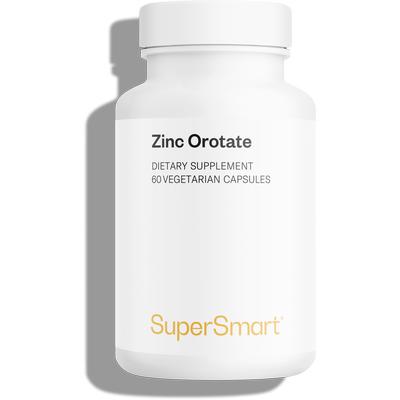
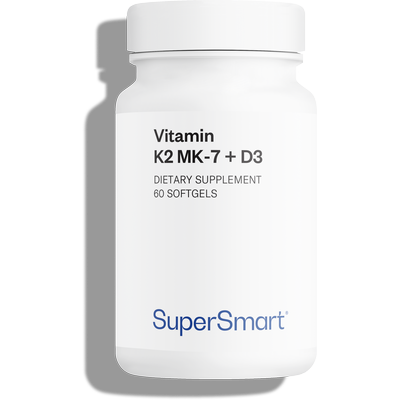
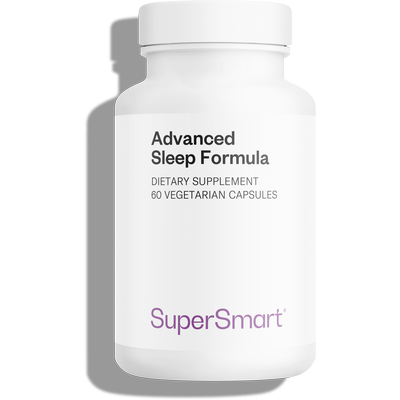
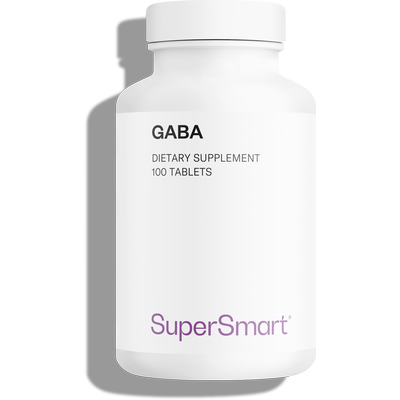
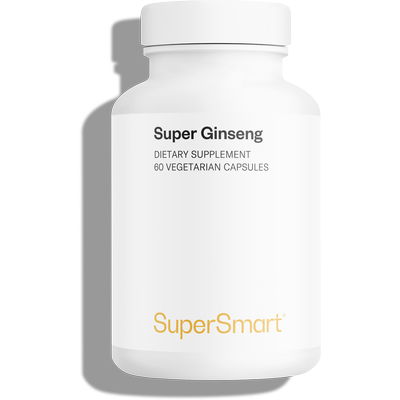
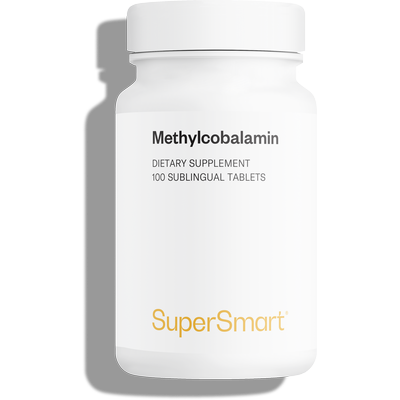

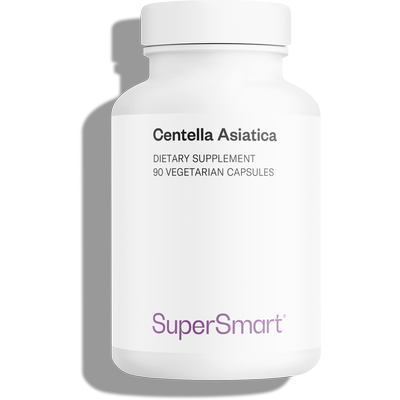
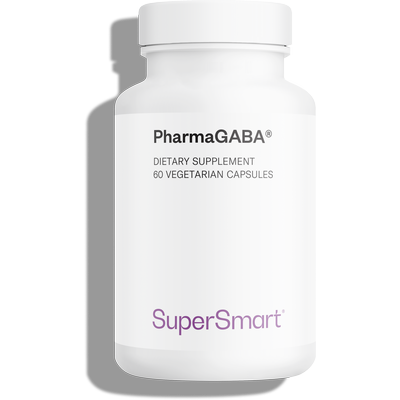
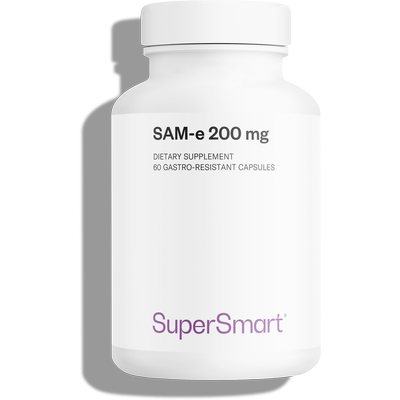
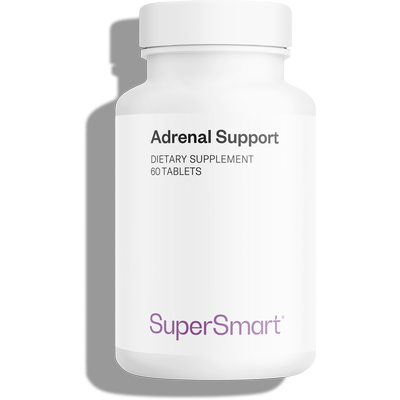
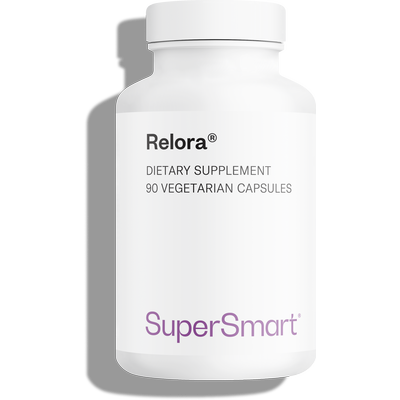

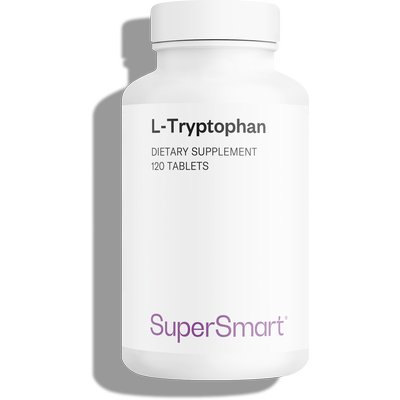

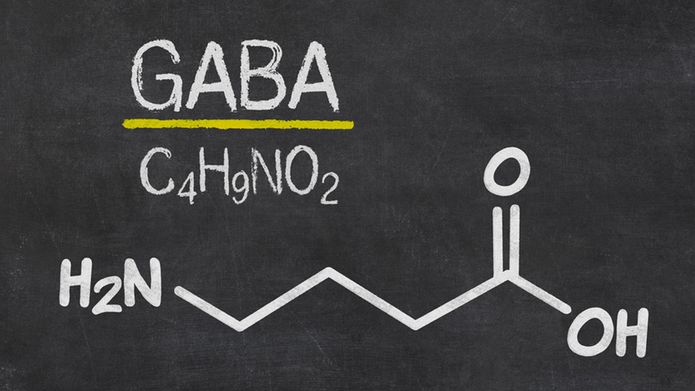

Merci d'avoir pris le temps de partager votre avis. Nous sommes désolés d'apprendre que vous ne pouvez pas utiliser notre produit Super Ashwagandha 300 mg en raison de votre condition de santé.
Nous comprenons votre frustration concernant les informations sur le site. Pour préciser, dans la section Conseils d'utilisation, nous recommandons toujours de consulter un professionnel de santé avant de commencer tout supplément, surtout si vous avez un problème de santé ou si vous êtes enceinte ou allaitez.
Nous nous excusons si cette recommandation n'était pas suffisamment claire et nous prenons note de vos remarques pour améliorer notre communication.
La satisfaction de nos clients est une priorité absolue. Si toutefois vous changez d'avis, vous pouvez nous retourner toutes vos commandes partiellement ou totalement dans un délai de 14 jours à compter de la date de réception. Seuls les produits encore scellés sont repris.
Si vous avez des questions supplémentaires ou si nous pouvons vous assister d'une autre manière, n'hésitez pas à nous contacter.
Cordialement,
Gaëlle - L'équipe Supersmart